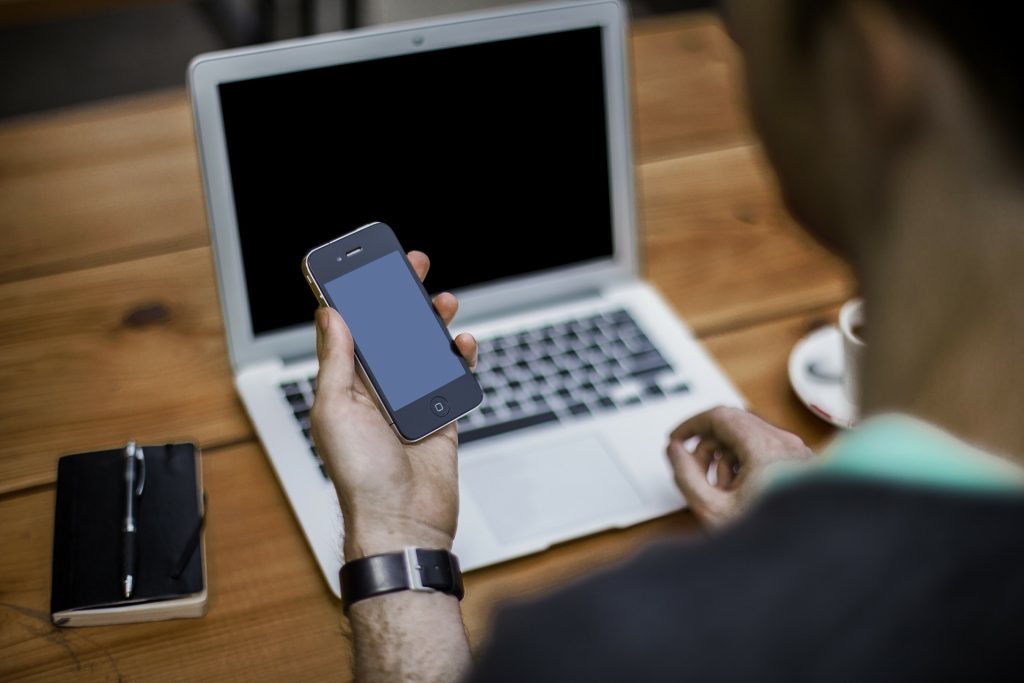Is constant exposure to all of the information on the internet overwhelming you? Are you checking your social media notifications over tackling important tasks? You’re not alone.
In fact, many of us suffer from digital burnout because of the online clutter that bombards us.
What do burnout symptoms look like? Recognizing the signs you’ve consumed too much tech can help you solve the issue. You might feel tired, apathetic, and unable to concentrate. Tech can zap energy levels. And let’s face it, content can be additive, adding to the problem.
Curators create online content to grab your attention. They use catchy headlines, clickbait, and information that matches your interests. To fight digital burnout, take a step back. Look at how you use devices and the internet. Then, return to your devices with purpose.
Evaluate Your Habits
Try keeping track of the time you spend on your devices. Write this down along with what activity you are doing in this time. Are you playing a game on your phone or checking Facebook? After you’ve tracked your habits for a week, think critically about the patterns you see.
Do you find that you’re often late to class or work because you stay up late browsing? Are you prone to looking at your phone during conversations? Do you find yourself feeling too drained to accomplish tasks after checking your email and social media accounts? If you’ve answered yes, read on for some tips to fend off digital burnout.
Create Rather Than Consume
When you spend a lot of time on the internet, you’re consuming a lot of information from others. This passive activity is not creative. In fact, you’re living vicariously through others. Consider going out into the world and accomplishing something of your own, instead.
What does this look like? You could start a project like a blog, journal, interest group, or participate in local events. None of these actions are complicated. They put you in the driver’s seat on your way to become a force of success rather than a passive consumer.
Limit Your Online Time
The internet is essentially unlimited for most of us. While it can be a useful tool, it can be very problematic when trying to focus. Set limits for yourself so that you don’t browse endlessly. Here’s a few things you can do:
- Schedule certain times of day to go online. Be intentional instead of whimsical. Setting an intention will keep you in the productive lane. For example, perhaps you set an intention to enjoy 10 minutes of scrolling. But for every 10 minutes, perhaps you also have to do 10 minutes (or more) of actual productive work.
- Limit these ‘free’ moments to specific times of the day. You’re the driver, not the online world.
- Turn off notifications. This simple act can help you reduce serious distractions.
- Force yourself to place devices out of reach an hour before you sleep. Block the temptation. You’ll relax your mind and sleep more restfully, as a result.
- Treat social media as a reward. Make a habit of completing your goals for the day, and then checking these sites.

If you still find that this isn’t enough to keep you on track, be even bolder. Try detoxing from the sites that divert your attention the most. Delete the apps from your phone or de-activate some of your social media.
Build Strong In-Person Relationships
While online relationships have their value, in-person relationships can be more impactful. Connect with friends and go out into the world to participate in activities that you’re interested in. Go to networking events to form professional connections. Strike up a conversation with someone that you may not have if you were looking down at your phone.
Learn to Be Alone With Your Thoughts
It’s easy to get bored without the constant entertainment and instant gratification of our devices. Boredom is good for your brain. It allows your mind to go into housekeeping mode, decluttering all the things we stuff into it. Make time each day to read a book, meditate, exercise, or partake in another valuable activity. Use this time to cultivate your interests, relax, or work towards personal and professional goals.
Use Your Devices Intentionally to Avoid Digital Burnout
Next time you pick up your phone or log into your laptop, do it with purpose. Before you immediately check your phone in the morning, take a few minutes to reflect on what you want to accomplish that day.
Find apps and websites that aid you in your life goals right now. If you’re trying to learn a language, use an app to practice for a few extra minutes each day. If you have a fitness goal, use your device to track your progress.
Next time you feel digital burnout, think about how to use the digital world as a resource for success. Consider resources like UMBC’s microcredentials and badges to help you reinvent yourself and build stronger skills.
